OTC sleep aids is a market that's beginning to win consumer trust. Festive advertising is planned and retailers are expanding fixtures as a sign of confidence in their future
Over the counter sleep aids are a key market for retailers at Christmas. Temporary insomnia can be a sign of stress rooted in many causes and anecdotal evidence from marriage guidance service Relate suggests a 20% increase in calls to its counselling services over the festive period.
"When families get together the cracks appear," says Relate counsellor Christine Northam.
The market is valued at £11.7m [TNS] and usually lifts 4% and 8% respectively in December and January.
Temporary insomnia affects more women than men (62% of sufferers) and has a bias towards 25 to 45-year-olds living in urban areas with above average work pressures.
Because consumers don't always know the differences between long- and short-term sleeplessness and between the ingredients in prescription and OTC medicines, confidence to self-select has been slow to take off in this category. Up 4% in value since last year [TNS], OTC sleep aids are a relative newcomer to the market, which has grown 74% over the past three years.
According to Nytol manufacturer GlaxoSmithKline, this suggests a growing public acceptance of OTC sleep aids and consumers' willingness to address the problem of temporary insomnia. However, there is still an estimated 41% of sufferers who do not treat themselves and another 57% who are redirected by a pharmacist to the GP for a prescription.
Despite the obvious advantage a pharmacy degree brings to this area, self-selection (general sales list) sleep aids are proving equally healthy as pharmacy-only products, both sectors growing at 4% year-on-year [Information Resources].
Grocery is being helped by the fact that new product development is favouring the self-selection, herbal sector and this currently accounts for 44% of category sales. NPD is also focusing on format, for example patches, as manufacturers seek to avoid the regulatory hurdles attached to licensing a new ingredient.
With a second uplift season around exam time and the annual family summer holidays, manufacturers and retailers have plenty of market potential to exploit. This point has not been lost on Tesco which says it is putting more space and availability behind the sector to reflect the upwards trend.
GR Lane, manufacturer of the Kalms stress aid, is repeating last year's £1.4m, four-month national TV campaign in the hope of repeating the 60% sales uplift it claimed in grocery last year. This is due to start in the last week of December.
Product manager Kirsty Cartwright believes advertising is the main impetus for the sales increase at the start of the year. She says: "The natural sleep aids market is pretty new and advertising makes people aware that there is something out there for them when they are not sleeping very well."
{{FOCUS ON }}
Over the counter sleep aids are a key market for retailers at Christmas. Temporary insomnia can be a sign of stress rooted in many causes and anecdotal evidence from marriage guidance service Relate suggests a 20% increase in calls to its counselling services over the festive period.
"When families get together the cracks appear," says Relate counsellor Christine Northam.
The market is valued at £11.7m [TNS] and usually lifts 4% and 8% respectively in December and January.
Temporary insomnia affects more women than men (62% of sufferers) and has a bias towards 25 to 45-year-olds living in urban areas with above average work pressures.
Because consumers don't always know the differences between long- and short-term sleeplessness and between the ingredients in prescription and OTC medicines, confidence to self-select has been slow to take off in this category. Up 4% in value since last year [TNS], OTC sleep aids are a relative newcomer to the market, which has grown 74% over the past three years.
According to Nytol manufacturer GlaxoSmithKline, this suggests a growing public acceptance of OTC sleep aids and consumers' willingness to address the problem of temporary insomnia. However, there is still an estimated 41% of sufferers who do not treat themselves and another 57% who are redirected by a pharmacist to the GP for a prescription.
Despite the obvious advantage a pharmacy degree brings to this area, self-selection (general sales list) sleep aids are proving equally healthy as pharmacy-only products, both sectors growing at 4% year-on-year [Information Resources].
Grocery is being helped by the fact that new product development is favouring the self-selection, herbal sector and this currently accounts for 44% of category sales. NPD is also focusing on format, for example patches, as manufacturers seek to avoid the regulatory hurdles attached to licensing a new ingredient.
With a second uplift season around exam time and the annual family summer holidays, manufacturers and retailers have plenty of market potential to exploit. This point has not been lost on Tesco which says it is putting more space and availability behind the sector to reflect the upwards trend.
GR Lane, manufacturer of the Kalms stress aid, is repeating last year's £1.4m, four-month national TV campaign in the hope of repeating the 60% sales uplift it claimed in grocery last year. This is due to start in the last week of December.
Product manager Kirsty Cartwright believes advertising is the main impetus for the sales increase at the start of the year. She says: "The natural sleep aids market is pretty new and advertising makes people aware that there is something out there for them when they are not sleeping very well."
{{FOCUS ON }}



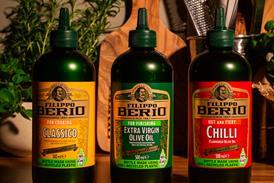





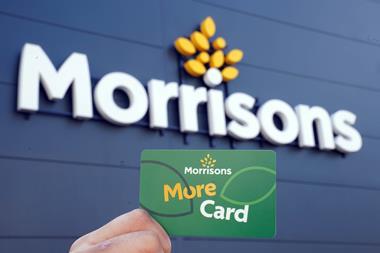
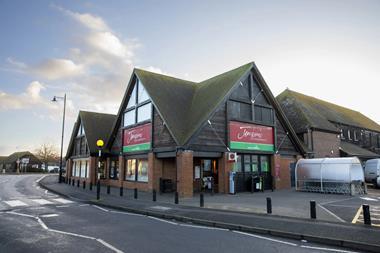
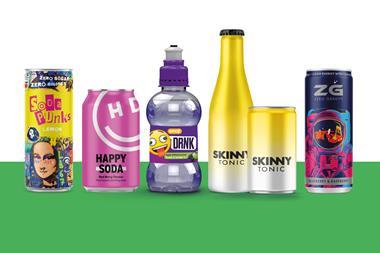
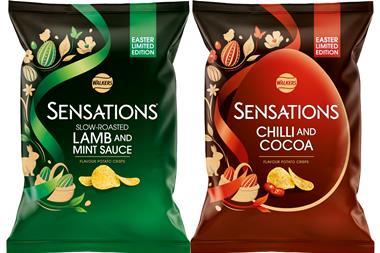

No comments yet